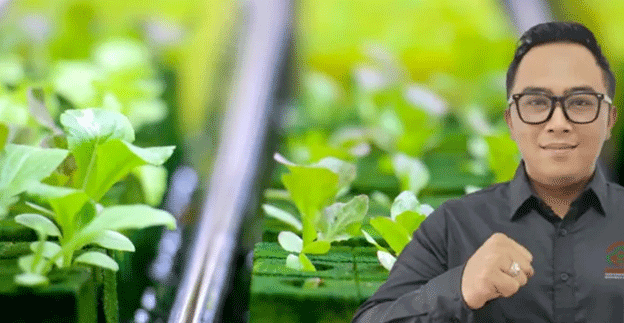In recent years, hydroponic farming has emerged as a lucrative venture for young entrepreneurs in Indonesia. One notable example is H. Muhammad Rian, a millennial farmer from Garut Regency, who transformed his hobby into a thriving business, supplying fresh vegetables to supermarkets and renowned restaurants. His journey underscores the potential of hydroponic farming as a profitable and sustainable agricultural practice.
From Hobbyist to Successful Agripreneur
Initially, H. Rian experimented with hydroponic cultivation in his backyard, growing lettuce, spinach, and pak choy using online tutorials and personal experimentation. The superior quality of his produce attracted local interest, prompting him to commercialize his hobby. Leveraging social media for marketing, he expanded his reach, eventually establishing a modern hydroponic farm that generates a monthly turnover in the tens of millions of rupiahs.
Financial Viability of Hydroponic Farming
Studies corroborate the profitability of hydroponic farming in Indonesia. Research conducted in Semarang City on Nutrient Film Technique (NFT) hydroponic systems revealed an average Return on Investment (ROI) of 17.62%, with a Payback Period (PP) of approximately 1 year and 3.5 months. The Net Present Value (NPV) stood at IDR 58,753,215, and the Internal Rate of Return (IRR) was 33.48%, indicating a financially viable enterprise.
Similarly, an analysis in Samarinda City reported that hydroponic vegetable farming yielded an average monthly profit of IDR 2,921,151 per farmer, with a Revenue to Cost (R/C) ratio of 3.49, signifying high profitability.
Empowering the Next Generation
The success of young farmers like H. Rian has inspired initiatives to engage more millennials in agriculture. For instance, a study in Garut District highlighted the importance of education and social support in fostering interest among young individuals to pursue hydroponic farming, ensuring the sustainability of family agricultural enterprises.
The experiences of millennial farmers such as H. Muhammad Rian demonstrate that hydroponic farming is not only a viable business model but also an effective means to engage the younger generation in sustainable agriculture. With relatively simple techniques and strategic marketing, hydroponic farming can yield substantial profits and contribute to local food security.












